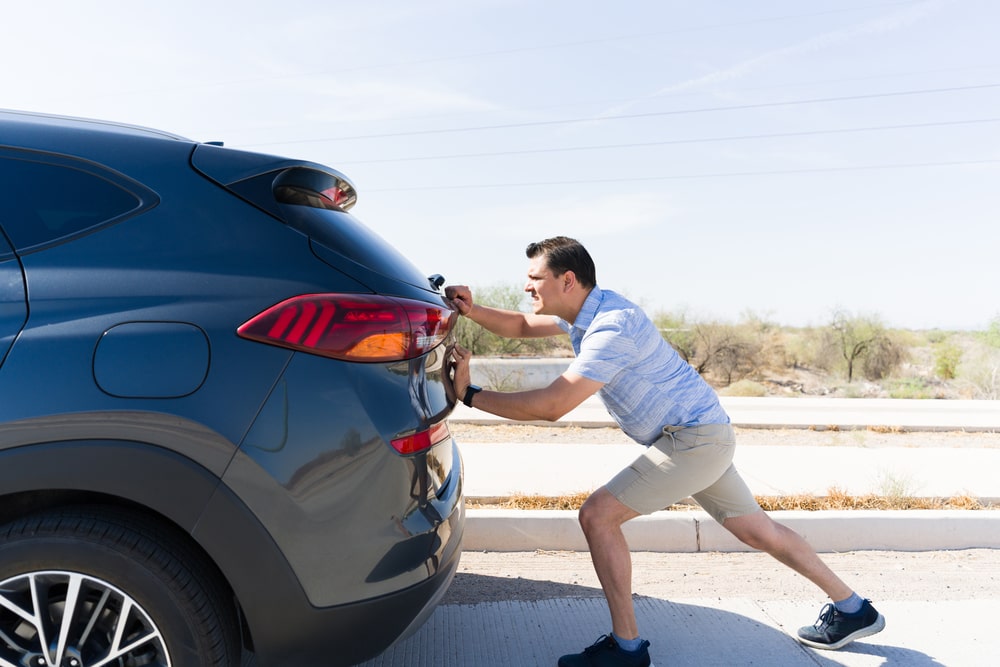Simple ways to prevent unexpected car breakdowns and issues
Valerie Raskovic

We all know how frustrating it can be when your car breaks down unexpectedly, leaving you stranded in the middle of an unfamiliar neighborhood or on the side of a freeway. But here's the thing: many common causes of car breakdowns and problems aren't inevitable. With a little diligence and regular maintenance and inspections, you can avoid a lot of those headaches. Let's talk about some of the most common car issues and how staying on top of your maintenance can keep them from happening.
First, let's look at some of the most frequent car problems affecting modern internal combustion vehicles.
- Brakes can cause serious issues. Worn brake pads or rotors can lead to noise, vibration and dangerous stopping issues.
- Tires are another important component, one that makes direct contact with the road and must be checked frequently. Underinflated and overinflated tires can cause safety risks, including handling problems and even blowouts. The tire tread wear is also very important; if the tires are worn, they may not perform as well and have a higher risk of puncture and blowout. Another important fact about tires that many people do not know is the fact that they have an expiration date. Without taking wear into account, a tire’s lifespan is 6 years. So, if you store a set of new tires for 6 years without ever mounting them on the wheels, they would be considered too old and past the expiration period regardless of the fact that they were never used.
The issue is the rubber compounds in the tire begin to break down over time, reducing flexibility and eventually leading to dry rot.
- Oil leaks and contamination can cause excessive wear on engine components and catastrophic engine failures. If the oil is leaking out of the engine, it can cause oil starvation problems, allowing metal components to seize. The most common sources of oil leaks happen due to bad head gaskets, valve cover gaskets, and oil pan gaskets. If this issue is caught early, very serious issues and future reliability problems can all be avoided.
- Another common cause of breakdowns and serious engine problems is overheating. Overheating can be most commonly attributed to the following faults:
- Coolant thermostat failures
- Driving while the vehicle is low on coolant
- Neglecting to flush and service the radiator and the coolant system
- Coolant leaks
- A lot of modern vehicles relying very heavily on fly-by-wire technology are more susceptible to electrical faults. Even a minor electrical fault may cause the car not to start. Most common electrical issues include:
- Software-related bugs
- Faulty wiring and connections
- Faulty computer modules
- Dead batteries
Here's where regular maintenance comes in. Checking the car’s vital systems regularly can save you money and aggravation in the long run.
- Routinely inspect your brake pads and rotors; if they are wearing too thin, it is best to have them replaced before more damage is done due to metal-on-metal contact. Regular inspections can also prevent sudden brake failure.
- Check your tire pressure monthly and rotating tires every 5,000-7,000 miles keeps them wearing evenly and prevents blowouts. Checking your tire’s age and wear is equally important. All tire manufacturers are required to mark the tire manufacturing date on the sidewall, so it does not require any type of special equipment to determine the tire’s age.
- To keep your engine in tip-top condition, regular oil changes and filter replacements keep the engine clean and prevent internal damage. Additionally, it is vital to regularly check under the vehicle for signs of any seepage and gasket failures. However, not all gasket failures can be easily detected with an untrained eye. In some vehicles the engine head gasket may fail in such a way that it will allow coolant to contaminate the oil; this can cause catastrophic engine failures. The way to check for oil contamination is to have the oil analyzed during regularly scheduled oil check intervals. The oil report should give you a clear understanding of the condition of the engine and signs of potential contamination.
- For electrical systems It is imperative to have the vehicle software updated regularly by the dealership and report any minor electrical issues to a trusted mechanic before they become serious problems. Keeping the battery clean and checking connections regularly can prevent unexpected breakdowns.
- The cooling system benefits from regular coolant checks and flushes, which prevent overheating.
Now, here's an important point—each year, make and model of car is different and they may require special precautions. Newer cars with advanced electronics might need different maintenance schedules or specific fluids. For example, electric vehicles have different charging and battery maintenance needs compared to gas cars. Older cars might need more frequent mechanical checks, while newer ones might focus more on electronic systems. Even within the same make, different models from different years can have unique common faults and maintenance requirements. So, it's crucial to check your owner's manual or consult with a mechanic familiar with your specific make and model of vehicle.
Let me give you an example. While for the most part the Honda Civic is beloved by many for being a reliable and cost-effective vehicle, some years of this model did have some serious common drivetrain issues. A lot of the Honda Civic models from 2001 to 2005 equipped with a CVT automatic transmission were prone to premature transmission failure. While if you are in the market for a preowned car, it is advisable to avoid buying cars with common serious faults. There are still steps you can take to avoid those failures. In the case of the Honda Civic of that generation, the most effective way of prolonging the CVT transmission life is by shortening the CVT service schedule and performing it more frequently. Changing driving habits to avoid abrupt and frequent hard acceleration may also help extend the life of that transmission.
Bottom line? Regular maintenance and staying informed about your car's specific needs can go a long way in avoiding common problems. It might take a bit of time and effort, but it saves you from bigger headaches down the road. Remember, your car is an investment, and taking care of it through preventative measures is worth it. Whether you drive a new electric vehicle or an older gas-powered car, being proactive with maintenance is the best way to keep your car running smoothly.
Read more articles

